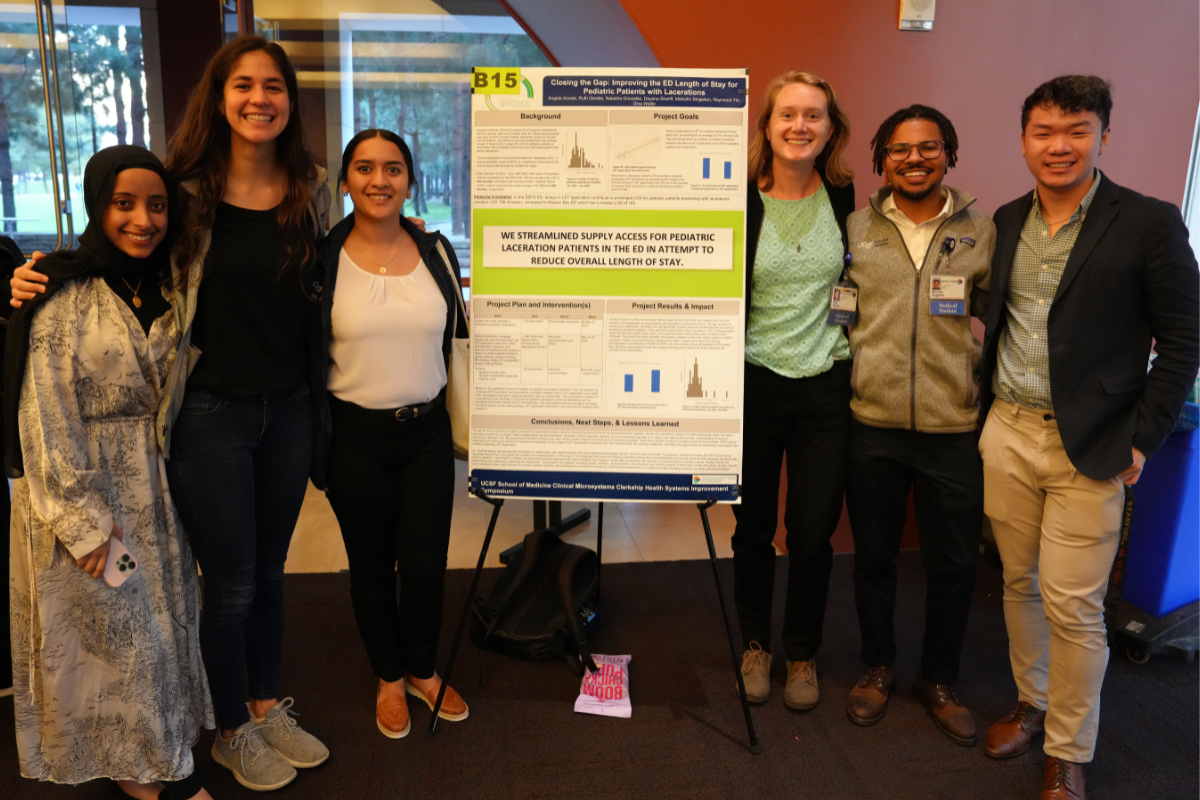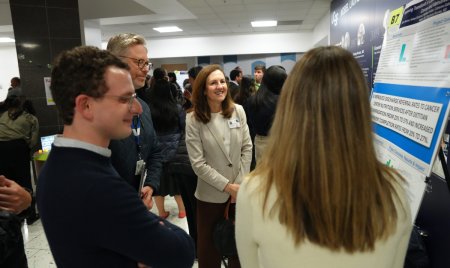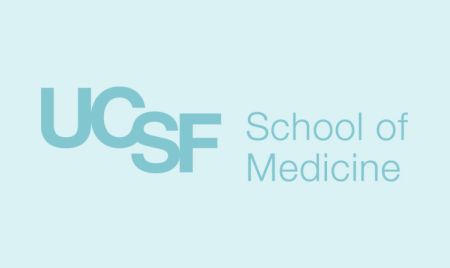Health Systems Improvement is a Job for Everyone: 2023 UCSF School of Medicine Health Systems Improvement Symposium
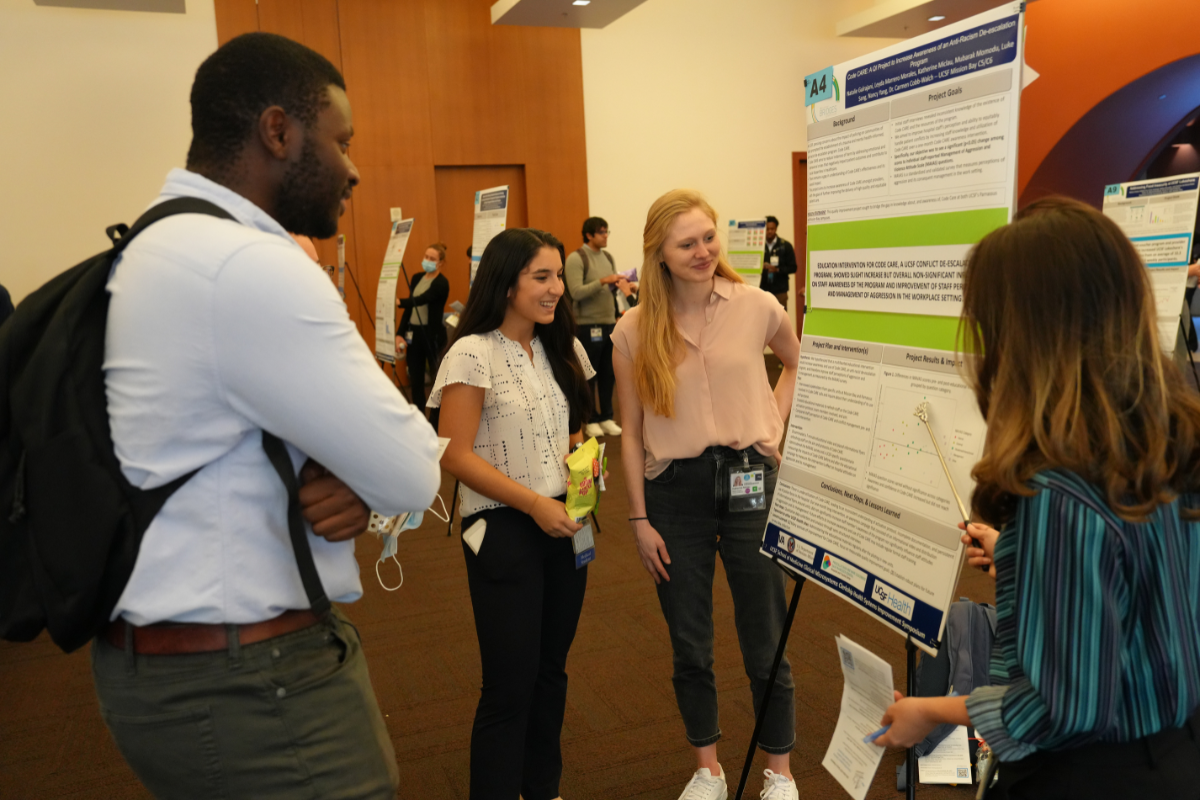
On October 30th, an air of celebration filled the Fisher Banquet Room at Mission Bay for the seventh annual UCSF School of Medicine Clinical Microsystems Clerkship Health Systems Improvement Symposium. The room was filled with laughter and smiles as 170 second year medical students were celebrating the completion of their almost year and a half of hard work, having completed a quality improvement project at a UCSF affiliated clinical site as a part of their Foundations 1 curriculum. Within their Clinical Microsystems Clerkships (CMC) groups, 30 teams of students led by a faculty coach carried out projects to improve the quality of patient care across UCSF Health sites, as well as Zuckerberg San Francisco General Hospital (ZSFG) and the San Francisco Veterans Affairs Health Care System (SFVAHCS).
CMC Health Systems Improvement Faculty Co-Directors Lei Choi, MD, MPH, FACP and Catherine Lau, MD, led the celebration, serving as emcees and ensuring the students were recognized for their hard work and achievements.
As soon as all were seated, School of Medicine Dean Talmadge E. King, Jr., MD gave his opening remarks, highlighting the novelty and importance of the Health Systems Improvement curriculum and noting that many other medical schools nationwide have followed UCSF’s lead in this area, introducing similar curricula. He concluded by sharing how much he always enjoys this symposium, saying, “I always learn something new.”
Next was an opportunity for three projects to be highlighted with oral presentations and Q&A. The first was from UCSF Lakeshore, where students Melissa Coloma, Kathleen Cui, Emma Grellinger, Matthew McLaughlin, Jaaie Varshney, and Ahmad Zedan, led by coach Mukund Premkumar, MD, focused on addressing food insecurity for patients. By providing food vouchers for fresh fruits and vegetables as well as increasing awareness for both patients and providers on programs providing food to those in need, they were able to implement a sustainable program to dramatically improve access to healthy food options for patients at UCSF Lakeshore for years to come.
The next group was from the SFVAHCS and included students Thomas Byrne, Mikaela Matera-Vatnick, Zuivanna Rivas, Talia Ruxin, Liam St. Hilaire, and Alexander Wan, led by coaches Neal Yuan, MD and Sanziana Roman, MD, FACS. This group worked in an outpatient vascular surgery clinic and addressed the disparities in improving baseline mobility documentation by incorporating a survey about mobility into the patient’s follow up note. Capturing mobility status helps clinicians promote better patient care and guide future clinical decision making. This project highlighted the importance of interprofessional collaboration, utilizing viewpoints from all members of the care team at SFVAHCS.
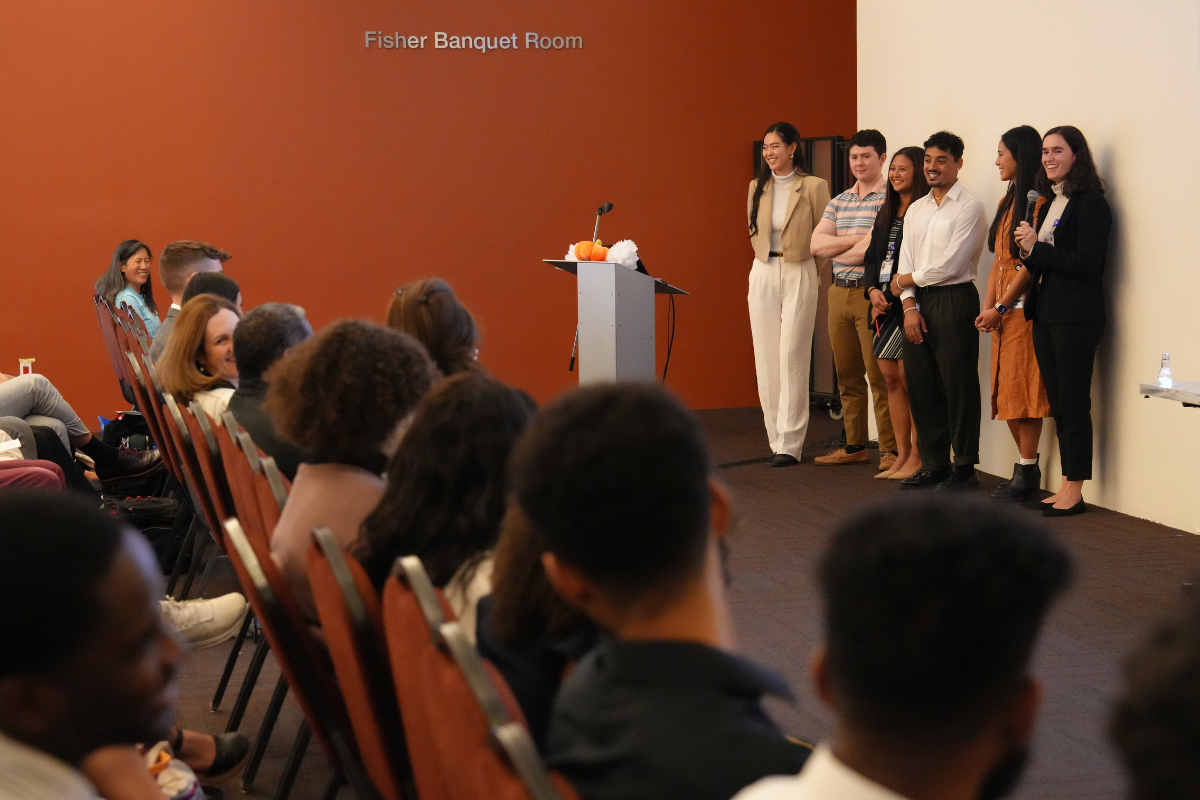
The final group from ZSFG including students Tiffany Cao, Mariam Carson, Giuliana Lee, Omeed Miraftab-Salo, Juan Serna, and Felicia Tang, led by coach Andrea Marmor, MD, worked in the pediatric asthma and allergy clinic to reduce existing disparities in the electronic medical record enrollment. The group found that there was a dramatic disparity in enrollment rates based on primary language spoken. The team piloted a program to increase enrollment that included a bilingual video about the benefits of the electronic medical record and restructuring a bilingual health advocate volunteer’s role to include helping patients’ families navigate the enrollment process. The students were able to significantly increase the number of patients who are able to access their medical information through the electronic medical record.
After the student presentations, the first of two poster viewing sessions began, where attendees could learn about all of the exciting quality improvement projects. While projects focused on many different areas within the UCSF microsystems, the core themes of improving patient experience, quality and safety, reducing waste, and access were present throughout. Students were proud to share their hard work with their peers and were also excited to get a chance to see their colleagues’ projects for the first time.
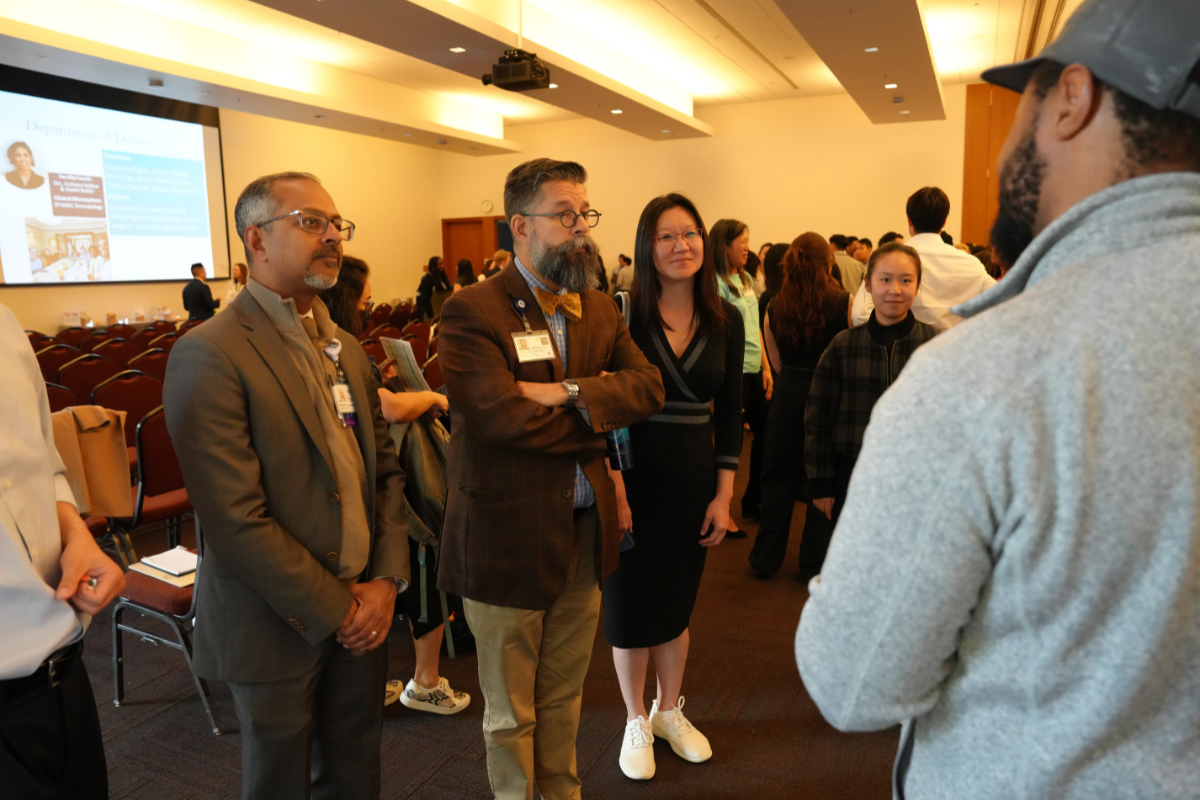
It was clear that the students saw the value in this aspect of their medical school curriculum. MS2, Liam St. Hilaire, said, “QI (Quality Improvement) allows you to elucidate both systemic and personal problems within the health care system. Both need to be addressed to move forward.” Students also understood the importance of interprofessional perspectives in order to make effective interventions in their microsystem. When asked what advice she had for those embarking on their own quality improvement projects, MS2, Mikaela Matera-Vatnick, said, “In determining what gap to address, be very intentional in incorporating interprofessional perspectives. That’s how you find a gap worth addressing.”
After the second poster viewing session concluded, Nerys Benfield, MD, MPH, Chief Medical Officer for Women’s Health and Vice Chair for Quality and Safety in the Department of Obstetrics, Gynecology, and Reproductive Sciences provided closing remarks. She commented on the overall quality of the projects and the thought and effort that went into each and every one of them, saying, “I’m impressed by the direct and clear impacts these projects have on the communities we serve. The focus on de-stigmatization and support of historically marginalized groups is fantastic.”
The evening was filled with joy and the celebration of projects that actively improved patient care led by the next generation of UCSF physicians who had gained a deep appreciation for the importance of directly improving health systems, regardless of their own stage of medical training. Aptly summed up by MS2, Eshan Mehrotra, “No matter who you are, you can still do something to improve care.”
